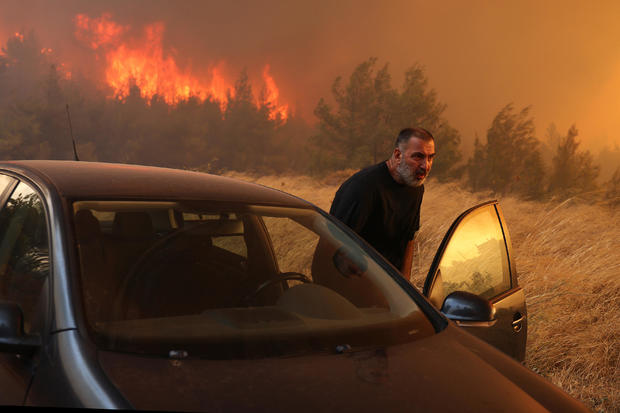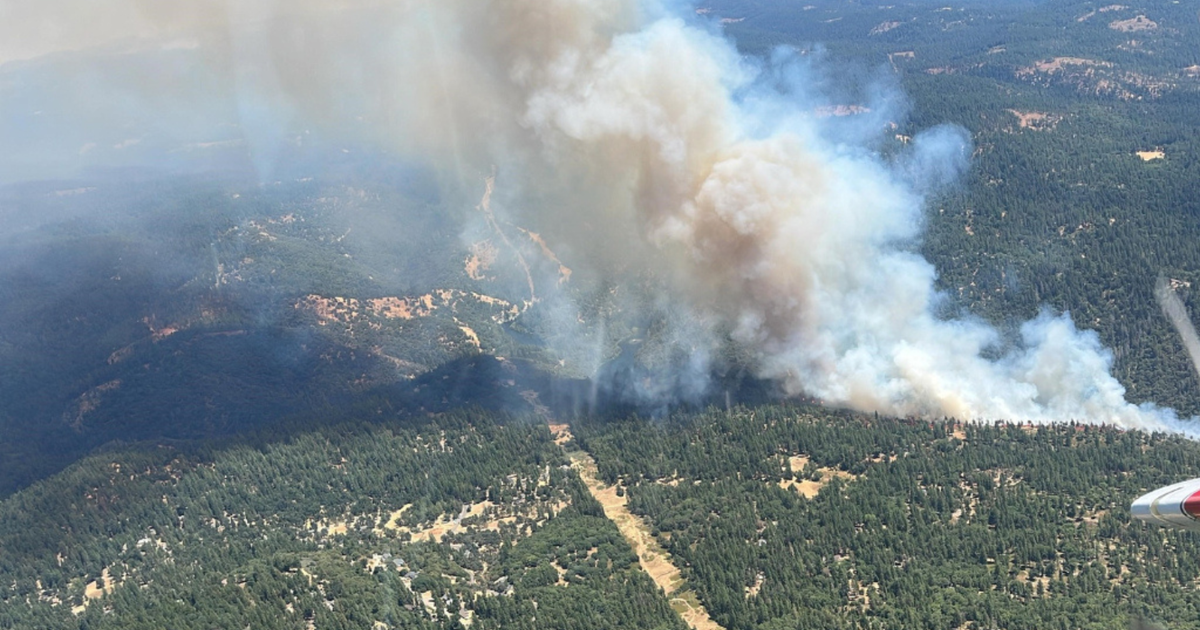Wildfires around Athens under control, Greek officials say. This follows the evacuation of thousands of people earlier this week.
Firefighters and milder winds have helped tame a spate of active wildfires surrounding Athens, but the risk for flare ups remains, officials told CBS partner network BBC on Wednesday.
Vasilis Vathrakogiannis, Greece's chief fire brigade spokesman, said officials remain on high alert and that firefighters are keeping close watch on the ground.
As of Monday, there were 41 agroforestry fires raging, according to the Fire Brigade of Greece.
One woman was reported dead and dozens more injured from the blaze that ripped through 100,000 acres of land since it started on Sunday, the BCC reported. Eight others were hospitalized with respiratory problems.
More than 700 firefighters, 199 fire engines and 35 waterbombing aircraft were called in to battle the blaze, which forced thousands to flee their homes, according to the BBC.
Residents of the historic town of Marathon were among those who evacuated, as a huge wildfire front crept closer to the Greek capital despite "superhuman" efforts to contain the blaze, officials said. The historic city's 7,000 residents were told to head for the coastal town of Nea Makri.
Authorities ordered at least five more communities and two hospitals northeast of Athens to leave after eight nearby villages, including Marathon, were told to evacuate on Sunday.
Marathon Mayor Stergios Tsirkas said the town, which gave its name to the long-distance race that is the centerpiece of the Olympics, was facing a "biblical catastrophe."
"Our whole town is engulfed in flames and going through difficult times," Tsirkas told local media.
Greece's Prime Minister Kyriakos Mitsotakis cut his summer vacation short to return to Athens to oversee the fire response, The Guardian newspaper reported. At least half the country was under a "red alert," the highest level of fire risk in Greece's warning system.
A 20-mile-long wall of flames, more than 80 feet high in places, was moving toward Athens, the ERT public broadcaster reported.
The smell of smoke drifted through Athens' center as thick grey clouds engulfed Mount Pentelicus, also known as Mount Pentelikon, which looms above the capital and is known for producing the marble used in the Acropolis and other ancient buildings.
The smoke had dissipated by Tuesday, the BBC reported, but the hazy skies continued to linger over the Greek capital.
The destruction revived memories of the Mati disaster, the coastal area near Marathon where 104 people died in July 2018 in a tragedy later blamed on evacuation delays and errors.
The summer wildfire season in Greece this year has seen dozens of daily blazes after the Mediterranean country recorded its warmest winter and the hottest June and July since reliable data collection began in 1960.
Temperatures in Athens were forecast to reach 100 degrees Fahrenheit on Wednesday.
Civil Protection Minister Vassilis Kikilias had warned Saturday that half the country was under a high-risk warning for fires due to high temperatures, wind gusts and drought conditions.
On Monday, he said the fire that broke out on Sunday afternoon near the town of Varnavas spread even though a water-bombing aircraft reached the area in just five minutes.
"We're working 24-hour shifts, all of us," said fireman Marinos Peristeropoulos.
"The fire spread very quickly because of the strong wind," he told AFP near one of the hotspots in Grammatiko.
Scientists warn that human-induced fossil fuel emissions are worsening the length, frequency and intensity of heatwaves across the world.
The rising temperatures are leading to longer wildfire seasons and increasing the area burnt in the flames, according to the United Nations Intergovernmental Panel on Climate Change.
Other parts of Europe are also struggling with high temperatures this week. In Rome, temperatures were expected to top 100 degrees Fahrenheit on Monday.
In the southern Netherlands, temperatures of up to 95 degrees Fahrenheit are expected, made worse by high humidity.




